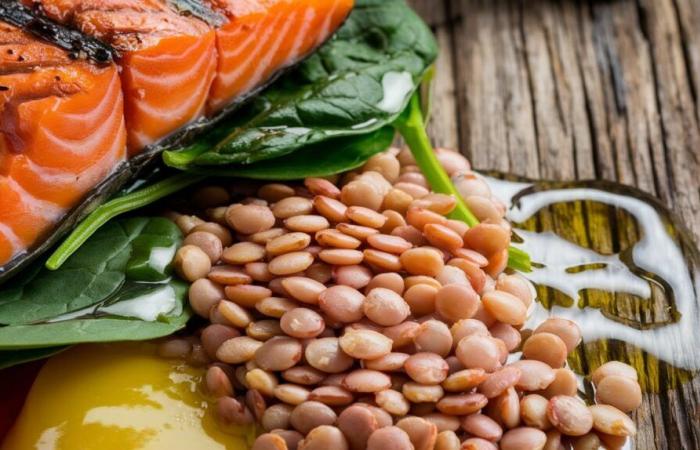At the start of the year, focus on these 6 star foods to pamper your heart. Oily fish, green vegetables, legumes… Discover how to create delicious meals that are beneficial for your cardiovascular system. The secret to good health is on your plate!
In this month of January, what could be better than making good resolutions for your health? What if you started by pampering your heart by integrating these 6 foods recommended by dietitians into your diet? Rich in beneficial nutrients, they will help you reduce the risk of cardiovascular disease, the leading cause of death in the world. So, ready to fill your shopping basket with these precious allies?
Oily fish, a mine of omega-3
Oily fish like salmon, mackerel, sardines or even canned tuna are full of omega-3 fatty acids. These essential lipids contribute to reduce inflammation, lower blood pressure and lower triglyceride levelskey factors for preserving cardiovascular health. The American Heart Association recommends eating at least two servings of fish per week.
To easily benefit from their benefits, do not hesitate to regularly include salmon or mackerel baked with a squeeze of lemon and herbs on the menu. Canned tuna is a great addition to your salads and sandwiches. Or for a quick snack, spread crackers with sardines and a touch of mustard.
Focus on green vegetables
Spinach, kale, chard… Leafy green vegetables are antioxidant and potassium concentrates. They also contain nitrates which improve the function of blood vessels. Other benefits: their richness in magnesium and fiber, two nutrients associated with better heart health. Without forgetting vitamins C and K which also help protect the heart.
Consider slipping a handful of spinach or kale into your soups, gratins and salads. Or quickly sauté them in a pan with a little olive oil and garlic for a tasty and healthy side dish.
Munch on legumes
Lentils, chickpeas, dried beans… Legumes shine with their content of soluble fiber that helps lower cholesterol. Studies show that regularly consuming pulses reduces the risk of cardiovascular diseases and coronary accidents. The icing on the cake is that they also provide plant-based proteins.
Add legumes to your soups, salads and stews. Nothing could be simpler than opening a can of red beans to garnish a bowl of rice or chickpeas to enrich a vegetable curry. These recipes using canned beans will give you lots of ideas.
Season with olive oil
Pillar of the Mediterranean diet, olive oil is rich in monounsaturated fats and antioxidants. These compounds fight inflammation and lower bad cholesterol. Research associates high consumption of olive oil with a reduction in cardiovascular risk and type 2 diabetes.
Use this oil to season your salads, marinades and stews. During colder months, it will add creaminess and flavor to your soups and stews. A drizzle of olive oil on roasted vegetables will also enhance their taste.
Taste soy foods
Tofu, edamame, soy drink… Soy products are an excellent option thanks to their quality proteins and their isoflavonescompounds that protect the heart. A study reveals that people who eat soy foods have a lower risk of developing cardiovascular disease or type 2 diabetes.
To benefit from their virtues, replace cow’s milk with soy milk in your smoothies and pastries. Add a cup of edamame to your mixed salads and Buddha bowls. And try this tasty edamame stew for a comforting and nourishing meal.
Prefer whole grains
Without hesitation, succumb to 100% whole grains such as brown rice, whole-wheat bread or whole-wheat pasta. They preserve the entire grain (bran, germ and endosperm) and are therefore rich in fiber and antioxidants. These nutrients help lower blood pressure, reduce bad cholesterol and fight inflammation.
Among all cereals, oats take the prize for the heart. A source of beta-glucans, fibers that lower cholesterol, it also helps prevent strokes. Treat yourself to a delicious porridge in the morning or incorporate oatmeal into your biscuits and cakes.
By adopting these few dietary tips and practicing regular physical activity, you put all the chances on your side to keep your heart in great shape. Remember, the key to good cardiovascular health is on your plate!






